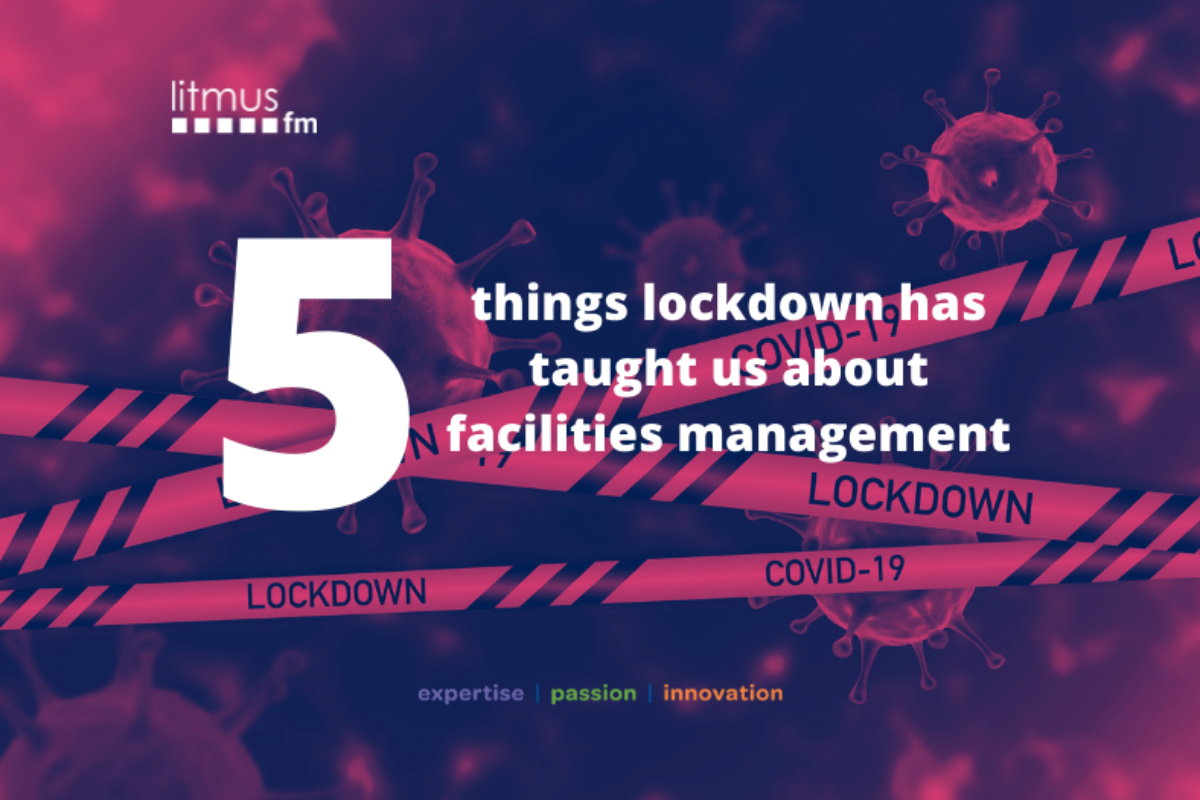After the past year, we wanted to reflect on what the lockdown has taught us about Facilities Management:
We need to be more flexible
Shifting to a remote working environment has been a huge learning curve for many businesses; with numerous challenges along the way. The businesses that have embraced a flexible work ethic have experienced a much speedier and smoother transition back into the workplace.
Granted, adapting to different working styles and methods is never easy, but with the way of working looking changed at least for the time being, being flexible pays dividends in the long run.
Renegotiating supplier contracts has been key to this flexible approach. For example, cleaning suppliers have generally seen a rise in costs resulting from new specifications incorporating infection control, workspace equipment, furniture, and fittings, whereas catering suppliers have seen sales reduce due to many on-site hospitality offerings being closed. Having these conversations with suppliers, renegotiating costs and ensuring the service provided works for you, will mean operationally and budget-wise everyone is happy.
Be prepared
Like any pandemic, no one could have predicted COVID-19 and with it have come some new challenges. It’s impossible to plan to the nth degree for every potential eventuality or ‘what if’ scenario, but having a robust facilities business continuity plan in place does mean you’re in a much better place should anything similar happen in the future. These plans have proven crucial in supporting businesses and remaining compliant with the regulations.
As part of preparation moving forward, businesses should invest in a robust asset register and ensure their preventative maintenance plan is up to date. Essentially this ensures the buildings and facilities are fit for purpose and employees can work safely.
Communication is key
Communication has always been a vital component of any successful business. But perhaps one of the biggest takeaways from recent months is how incredibly important it has been during the pandemic.
Maintaining strong relationships with your employees, clients, and suppliers is always a key priority, but without physical, face-to-face contact, it has become even more crucial to stay connected and accessible; whatever the time of day or day of the week.
Lots of businesses we work with have invested in Employee Insights programmes to understand how their employees are feeling prior to returning to the workplace. Understanding needs and expectations are central to continued employee satisfaction. Our Employee Insight program enables any concerns to be shared and opens the door to solve any potential issues.
Benchmarking your FM suppliers fixed costs to help you to stay nimble
Whether it’s a global pandemic or a recession, it’s important that your business can adjust its cost base to suit the prevailing climate. Taking an agile approach will help you to operate profitably. This may mean cutting down on unnecessary overheads and only paying for what is truly required.
One way to do this is via benchmarking. It gives you the flexibility to look at the service you are receiving today and see if it is delivering best value to you, as well as being fit for purpose.
Our benchmark reporting has helped to reduce overheads and cut down on unneeded and possibly wasteful expenditures. Driving cost efficiency and value for money remains a priority for most organisations, especially in the current climate. We carry out reviews or benchmarking projects that offer a tried-and-true approach to homing in on the efficiency and quality of both combined and individual facilities management services.
A strong workplace culture required
Strong workplace culture can have the power to transform a business and carry it through the toughest of times. With your employees being your biggest brand advocates, keeping your staff engaged with your vision and goals will help make your company truly successful.
In such unprecedented working conditions, culture can really show its worth. Teamwork and high morale are both key ingredients in keeping business as usual. With hybrid offices looking a popular choice amongst many, developing a workplace culture that can still function when employees are out of the office is also essential.
One way to achieve this is through a Target Operating Model (TOM). The primary purpose of a TOM is to enable the application of a corporate FM strategy that meets the needs of your employees today in a more agile, flexible working environment. It is a high-level representation of how a company can be best organised to deliver and execute on the organisations FM and employees’ needs efficiently and effectively.

